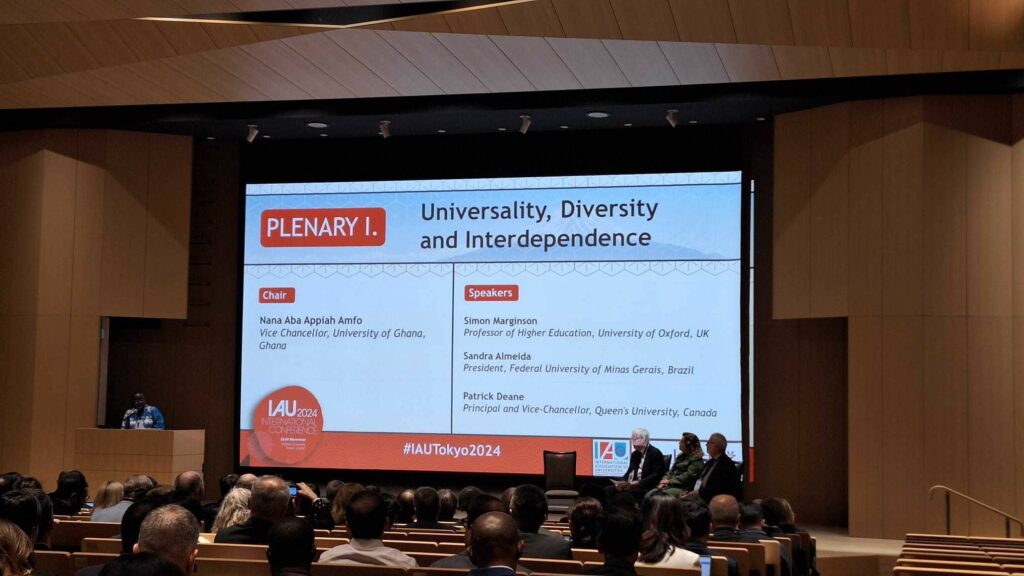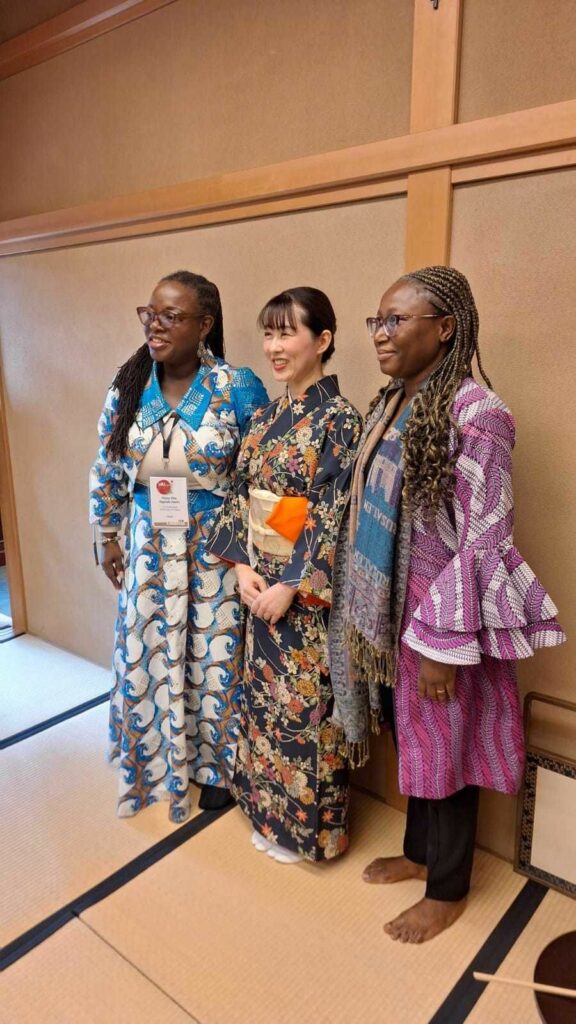Universality, Interdependence, Diversity: Notes from IAU 2024 International Conference
In an increasingly interconnected world, society’s expectations of universities have undergone significant transformations. Universities have been increasingly called upon to actively engage with the communities they are embedded in, contributing directly to societal progress and opening research processes to the public.

Universality: Evolving Expectations
This shift highlights the importance of “citizen science,” where academic institutions collaborate with local and regional communities to address pressing issues and foster inclusivity. Over the past decades, however, universities have not always met those expectations.
The demands for greater societal involvement and accountability have amplified, urging institutions to re-evaluate their strategies and embrace innovative approaches to engage with the public. Universities must bridge the gap between academia and society and ensure their structures and practices reflect the values they espouse. From integrating diverse perspectives into curricula to collaborating across disciplines and borders in all stages of scientific research process, universities have a vital role in shaping an inclusive academic ecosystem that is responsive to societal needs.
Interdependence: Building Collaborative Future
Custodians of a global knowledge stream, universities are uniquely positioned to foster collaboration within their communities, across borders and disciplines to address global challenges that no single institution or nation can tackle alone. True interdependence, however, requires dismantling systemic barriers within the academic ecosystem, This includes, inter alia, reforming the university ranking, assessment, and scientific publishing systems, addressing inequities in access to resources, and removing barriers to knowledge dissemination. These systems, intended to measure and promote academic excellence, have often perpetuated inequities and incentivized practices that detract from the broader mission of open science. While a dedicated discussion on some of these reforms can be found in the related article, it is worth noting that creating equitable structures for knowledge sharing, participation, and assessment is a necessary step toward fostering true global collaboration.

Diversity: Inclusivity Without Inequities
Embracing inclusivity and addressing inequities requires a fundamental shift in how universities define and pursue excellence. First and foremost, they need to create space for underrepresented voices and perspectives. Universities must confront the structural biases embedded within their frameworks and reframe themselves to foster inclusivity, diversity, and equity.
A poignant example from the discussions highlighted the role of Canadian educational institutions in the residential school system targeting Indigenous populations, a matter of historical record. Today, universities are trying to address historical injustices faced by Indigenous and marginalized communities. Efforts such as the integration of indigenous learning into curricula, as seldom as they may be, point to the transformative potential of education.
Beyond this example, universities have historically struggled to recognize, respect, and benefit from the global diversity of cultures, practices, and priorities. Too often, they have been perceived as extensions of a Western-dominated system, reinforcing values and frameworks that prioritize predominantly Western perspectives. Competitive ranking systems, which validate these priorities, have undervalued contributions from other regions, particularly the “global south,” and overlooked the rich knowledge traditions developed through diverse scientific, vocational, and artistic practices worldwide.
Facing the errors of the past and leading by example enables universities to demonstrate how institutions can evolve to promote equity and reconciliation – and be the agents of change in the future. This includes recognizing their historical roles in perpetuating inequality and taking actionable steps to rectify these legacies. As one speaker aptly noted, “Education was part of the problem; it must now be part of the solution.”
Universities must lead by example, recognizing they were the agents of inequality as much as of progress. They must realign their structures and practices to ensure they remain drivers of innovation, continue addressing global challenges, and provide key contributions to a more equitable and sustainable future.
—
The International Association of Universities (IAU) has presented a report on open science at the IAU 2204 International Conference in Tokyo, Japan.